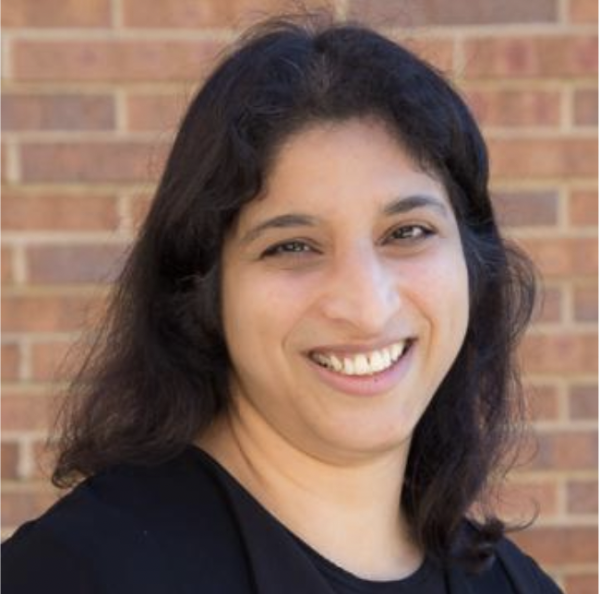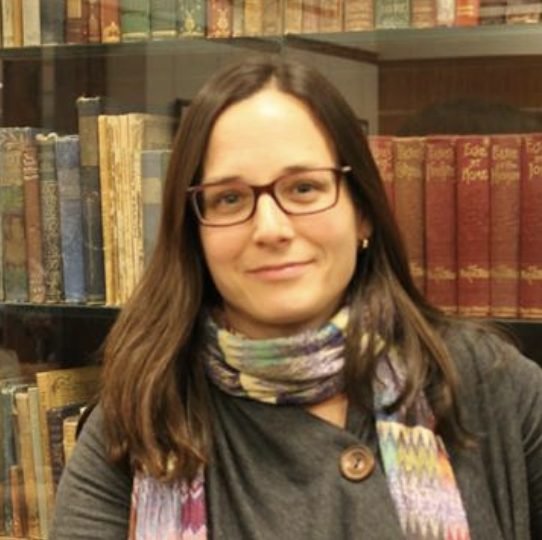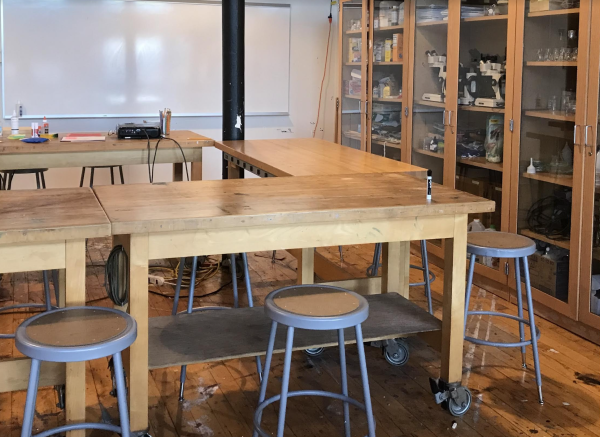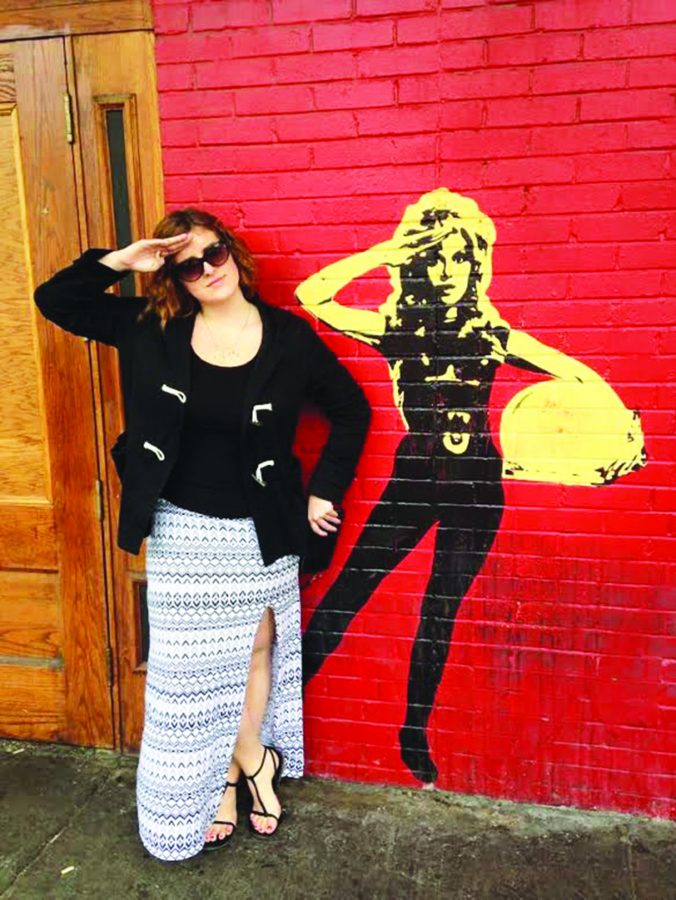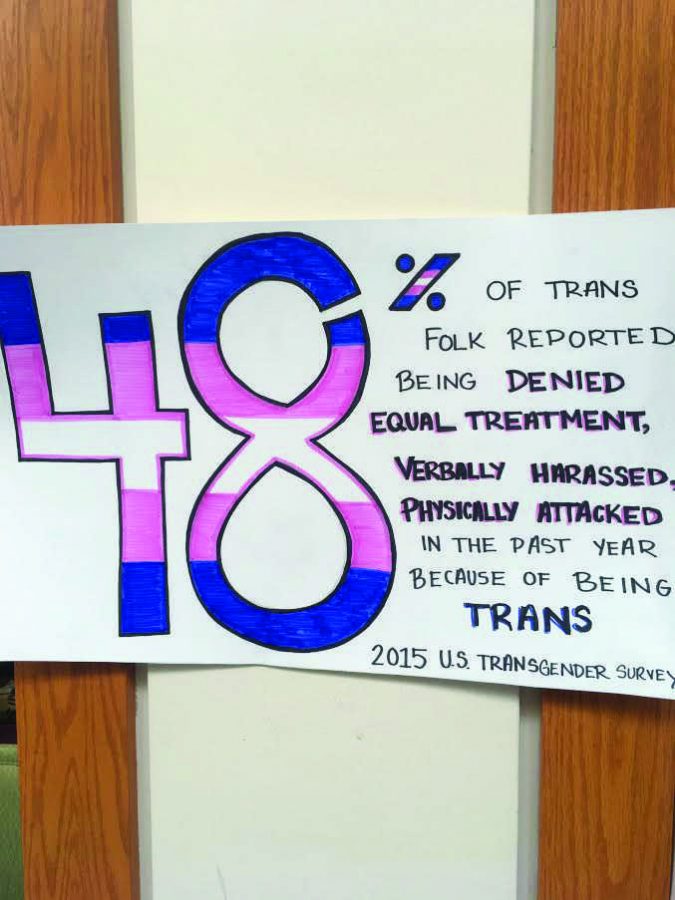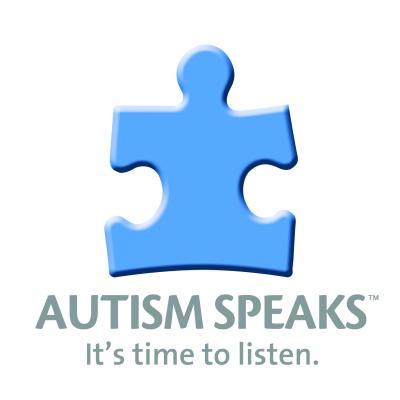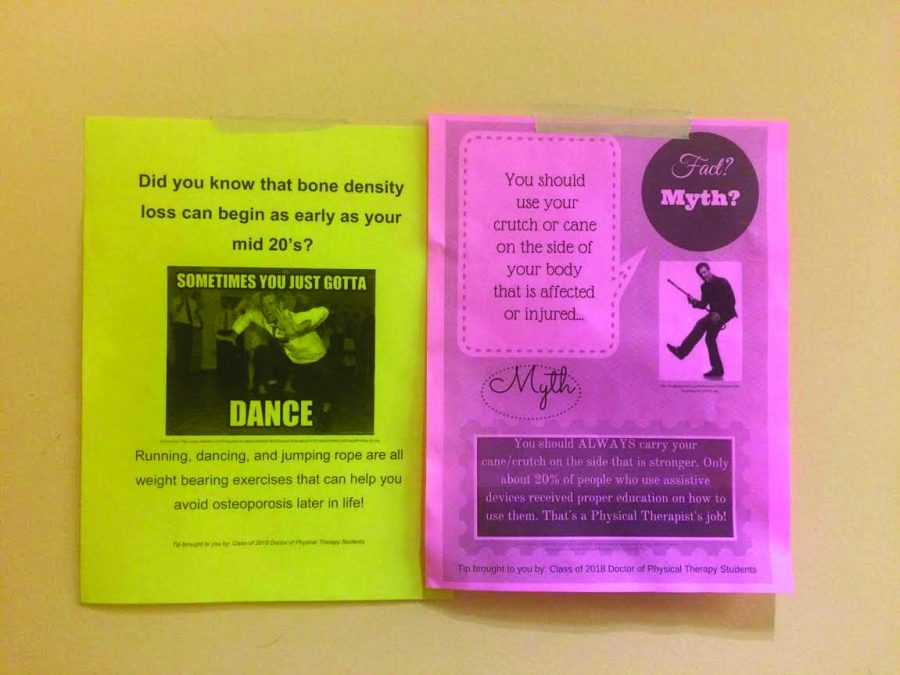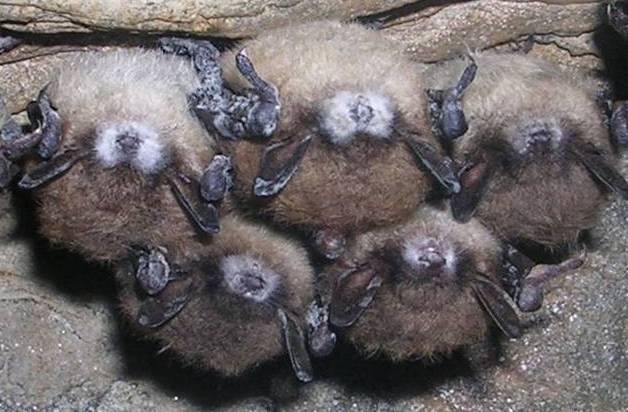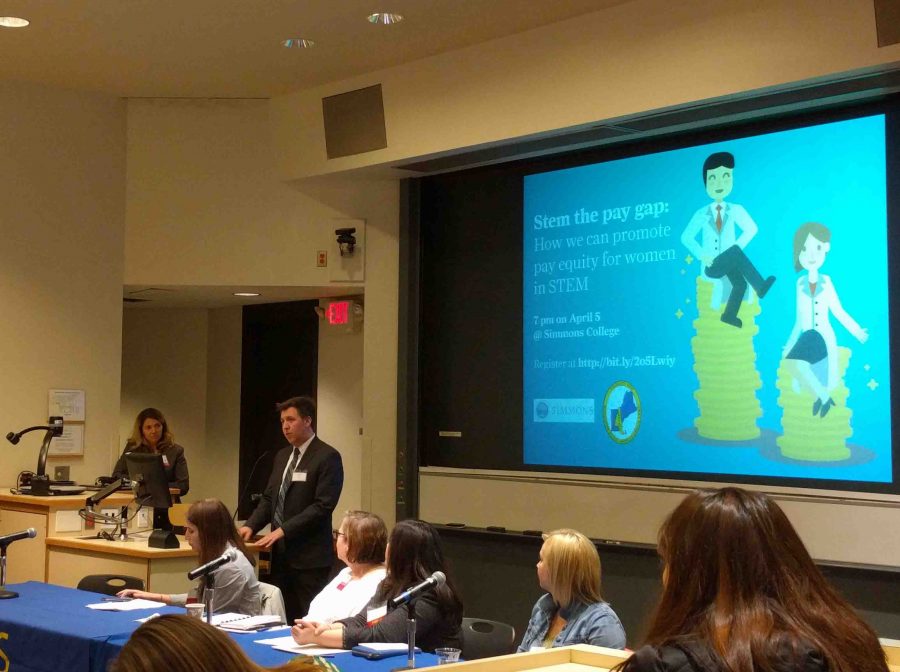By Katie Sittig-Boyd
Staff Writer
On April 17-19, 12 Simmons students from the Department of Computer Science and Informatics attended the first Wellesley-Simmons Hackathon, a weekend-long event designed for students interested in creating apps, websites, and other computer-related projects.
These projects, known as “hacks,” are developed by teams of students over the course of a hackathon, and range from games to Google Chrome extensions. There is no limit to what participants can create.
Hackathons typically take place over a short period of time, emphasizing competition and creative productivity. The Wellesley-Simmons Hackathon took place Friday through Sunday, for a total of 36 hours spent at the hackathon.
Many hackathons emphasize a particular theme, such as the Cambridge TransH4ck, which emphasizes hacks designed to improve the lives of transgender people, or the Boston Cleanweb Hackathon, which focuses on developing technologies to improve energy efficiency for individuals and companies alike.
The Wellesley-Simmons Hackathon, rather than focusing on a specific theme, offered prizes in four different themed categories, including “Best Game” and “Quirkiest Hack.”
The purpose of this hackathon was to create a space specifically for female programmers, due to the overwhelmingly male-driven nature of technology fields in general.
Cali Stenson and Karina Chan, who spearheaded the Wellesley part of the hackathon effort, wrote a guest article for the Geek Feminism blog that discussed the sexist culture perpetuated at hackathons.
“Hackathons should foster an environment friendly to all skill levels and all people that encourages learning for the sake of it,” Stenson and Chan wrote. “This is should be enforced not just by creating a magic ratio, but by changing how the internal culture is run.”
The majority of local hackathons are co-ed. While Hack Holyoke, Mount Holyoke’s bi-yearly hackathon, boasts a participant pool of 60 percent women, many other hackathons have high percentages of male hackers.
“Our aim is to focus on the ground up and to address these questions: how do we get women to participate in the hackathon scene, and how do we get women to stay?” Stenson and Chan said.
The WS Hackathon, developed with this focus in mind, emphasized that it was for women, though according to its website, ws-hack-with.me, “This event is geared toward women. If you are not a woman and would like to participate, please feel free to fill out the registration form.”
The website also emphasized that the hackathon planners were striving to make the event a safe space.
Prior to the event, participants were divided into teams of four students and each were assigned a mentor from a sponsoring company. Many college hackathons feature mentors from various technology companies; their job is to support the teams by providing guidance, offering advice, and potentially teaching students new technologies, such as iOS development.
Victoria Wang, a first-year Simmons student, worked with three other Wellesley students, all of whom were beginners to computer science. For them, the mentorship was a crucial part of the hackathon experience. “We had a great support from our mentors who worked at Kayak,” Wang said. “I really enjoyed getting to know other students from other college and mentors from big companies.”
Several companies, both local and international, sponsored this hackathon, including JP Morgan; MakeSchool, a California-based startup focused on providing affordable tech-centered educational experiences for budding app and web developers; Kayak; Accenture; HubSpot, a Cambridge company working to develop a software product for improved business marketing; and Telerik, which offered a prize for the best app developed with the Telerik App Builder.
There were a total of 13 teams competing for five prizes: the Grand Prize, which was determined by the participating company mentors; the Best Game prize; Quirkiest Hack prize; Best Life Hack prize; and Best Social Hack prize.
Clare Pak was on the Grand Prize-winning team, Team Manatee, which developed a Google Chrome extension that adjusts colors in a web browser to make webpages more accessible to color blind people and people with visual disabilities.
Simmons students Ellissa Barclay, a first-year, and Jillianna Farietta, a junior, were part of Team Quokka, one of the three finalists for the Grand Prize with their project, Canary, a mobile app for tracking medications, mood, and other health aspects. The app won the Life Hack prize.
Team Hyena was comprised entirely of Wellesley students and won the Social Hack prize with their project, “Twitter Degrees of Separation,” which will find the degrees of separation between two Twitter users with a shortest-path algorithm. This project was also a finalist for the Grand Prize.
Team Koala, which included senior Susan Boyce, won Quirkiest Hack with an Android app that could translate between English and Furbish, the language used by Furbys. The Quirkiest Hack prize was comprised of a Furby and a colorful hat, which Boyce said influenced their choice of project.
The winners of the Game Hack prize were Team Ferret, which was comprised of three Wellesley students, a mentor from Accenture, and Katie Sittig-Boyd. Each teammate received a GameBoy Color and a Tamagotchi as prizes.
The Simmons students who participated in the hackathon overall enjoyed the experience. “I met many new friends, and it was definitely worth spending the night on the floor,” said Shayla Fitzpatrick, a first-year CS major.
According to Wang, this hackathon was her first, and it was a positive experience. “At first I did not know what I was getting myself into, but it turned out to be a great experience, one that I will never forget,” said Wang.
The hackathon planners emphasized the beginner-friendly atmosphere, since so many similar events place a lot of importance on competition, advanced programming, and marketable apps.
“I think there’s a misconception about hackathons that you have to have fully developed programming skills in order to participate,” Barclay said. “However, our team had never developed an app, and barely touched JavaScript, but we still managed to create something awesome.”
Simmons sophomore Caitlyn Gemma said, “I was nervous to participate in my first hackathon, since I am still in my growth stages of computer science, but this experience inspired me to learn more and do more outside of the classroom.”
Barclay, Fitzpatrick, Wang, and Gemma, along with several other hackathon participants, will be part of a committee of Simmons students responsible for planning a hackathon in the fall. This hackathon will be held in late September at Simmons College and open to college students, specifically women and gender non-conforming individuals, in the Boston area.



